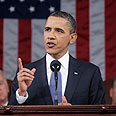
Anyone interested in history or the dynamics of presidential decision-making will find George W. Bush’s book fascinating. In his recently published memoirs, President Bush describes key decisions he made during his eight years in the White House.
Bush describes the basis for key personnel appointments, his stem cell policy, the decision to take the fight to Afghanistan and Iraq after 9/11, and highlights how his unpopular decision to implement the "surge" in Iraq turned out to be a crucial triumph in the “war on terror.” He is also surprisingly forthcoming in recounting the mismanagement of Hurricane Katrina and detailing economic blunders made before and during his tenure.
Beyond specific decisions and various turning points, history will judge Bush for the doctrine he set and the eventual success or failure of its implementation. That doctrine as noted in his book consisted of four elements: “First, make no distinction between the terrorists and the nations that harbor them – and hold both to account; Second, take the fight to the enemy before they can attack America; Third, confront threats before they fully materialize, and; Fourth, advance liberty and hope as an alternative to the ideology of repression and fear.”
The fourth, and perhaps most important point was referred to by Bush as his “Freedom Agenda.” In the context of that agenda, greatly influenced by Nathan Saransky and Ron Dermer’s writings, Bush refused to accept that "the peoples of the Middle East were somehow beyond the reach of liberty,” and believed that freedom was a universal objective that can and should be obtained by all.
The Middle East revolution that began in Tunisia less than a month ago and subsequently cascaded to Yemen and Egypt may become a bloody one. So were the American and the French Revolutions. But if at the end of the day real freedom is found by the masses, real peace may also be attained.
Elections aren't enough
For that to happen, lessons from mistakes made in Iran in 1979 and again in 2009 must be absorbed. In 1979, President Carter stood idle as the Islamic revolution replaced the corrupt Shah and in 2009 President Obama also stood by as a popular uprising was struck down by the tyrants of Teheran.
This time around, for real freedom to be found, President Obama will need to confront oppressive enemies rather than just turn his back on weak allies.
A one-time democratic election can lead to the disaster of legitimized dictatorship. We saw that in Iran and again in Gaza. Real freedom needs much more. Although ballots are better than bullets, democratic election is only one element of freedom. Human rights, checks and balances, equal opportunity for all and the separation between church (or mosque) and state are all indispensable freedom factors.
If the democratic process will be limited to one time elections, then the revolution we are currently witnessing may turn out, as Boaz Ganor of the International Counter Terrorism Institute warns, to be a Pyrrhic victory that spreads Sharia law rather than the democratic rule of law throughout the Middle East.
Time, perspective and hindsight are often required when passing verdict on a presidency. When Truman left office in 1953 his approval ratings were in the twenties. Today he is viewed as one of America’s great presidents. Reagan was once ridiculed as a diplomatic dunce but will be remembered by most as the "Great Communicator" who won the Cold War.
In the unlikely event that Obama plays the cards he was dealt right and true freedom and peace is realized by the hundreds of millions living in the Middle East, Bush may eventually be regarded as the best president of our time.
- Follow Ynetnews on Facebook















